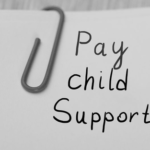Will Social Media Hurt Me In A Family Law Proceeding?
Beware: Everything you post on a social media site can and will be used against you in any family law proceeding. Social media sites are constantly accessible. Increased accessibility to the Internet, especially social media sites, is a double-edged sword. On the one side, social media sites allow us to remain in close contact with friends and family, both near and far, seek advice, or just express our thoughts and ideas. However, this is also one of the downfalls of social media sites. While social media sites provide us with a platform on which to vent, individuals don’t necessarily take the time to think before blasting their personal thoughts and feelings on their social media site. At the time, “venting” may make you feel better, and may even seem completely harmless at the time, but it can cause anyone involved in a legal battle some significant issues. Evidence found on social media sites can be relevant in any legal matter; however, it is especially relevant in family law proceedings, such as divorce, and child custody and support matters.
Prior to social media sites, the evidence used in contested divorce proceedings was not only difficult to obtain, but also costly, sometimes involving interviewing numerous parties, hiring a private investigator, or digging through years, sometimes decades, of paper documents. This is no longer the case. Having a profile on one of the many dating websites may be evidence of infidelity. That angry diatribe you posted about your soon to be ex may be construed as threatening. Even something as simple as a LinkedIn account can be damaging, especially if your account shows you have a lucrative job and you are claiming you cannot afford to pay spousal support.
North Dakota & Best Interest Factors
The above is also relevant in contested child custody and support proceedings. When making a decision regarding parental rights and responsibilities, North Dakota looks at numerous factors commonly known as “the best interest factors.” N.D.C.C. § 14-09-06.2. Invited to an after-work social event? A picture posted of you at this seemingly innocent gathering can be twisted to argue that you have substance abuse issues, that you’d rather spend time with your co-workers than with your child, or that you have more income than you are disclosing – which may affect child support. Even those updates from Candy Crush, Slots, or FarmVille can be given a negative spin, for example, the adverse party may argue that you are incapable of properly caring for your child, because you spend too much time playing these games.
Parties can discover evidence from social media websites through several different methods. The first is through informal measures, such as looking at all of the information you keep publicly available. This is more commonly referred to as “creeping.” Parties can also use traditional means of discovery to obtain evidence on social media sites. Rule 26 of the North Dakota Rules of Civil Procedure allows parties to “obtain discovery regarding any non-privileged matter that is relevant to any party’s claim or defense, including the existence, description, nature, custody, condition, and location of any documents, electronically stored information, or other tangible things and the identity and location of persons who know of any discoverable matter.” Specifically, parties can use the following discovery methods: (1) depositions; (2) written interrogatories; (3) requests for production of documents or things or permission to enter on land or other property, for inspection and other purposes; (4); physical or mental examinations; and (5) requests for admission. As a last resort, parties can obtain a court order to discover “any matter relevant to the subject matter involved in the action.” N.D.R.Civ.P. 26(b)(1).
Family Law Questions?
If you have any questions regarding family law, contact our Family Law Team at 701-297-2890 or send us an email below.










